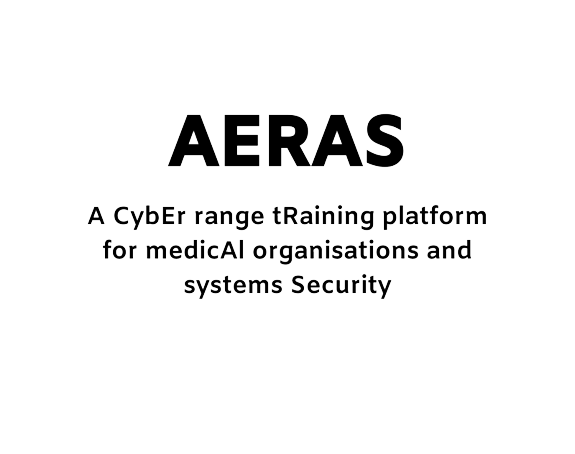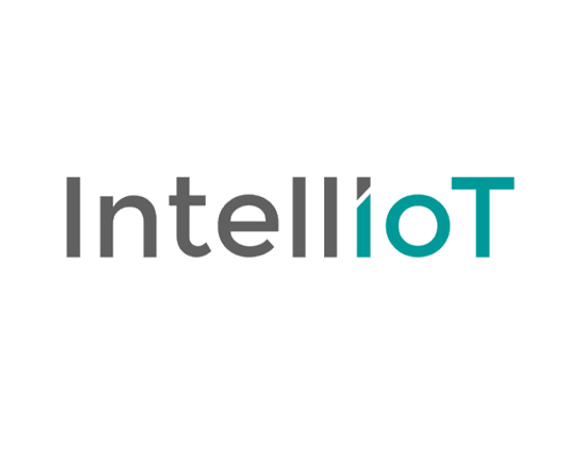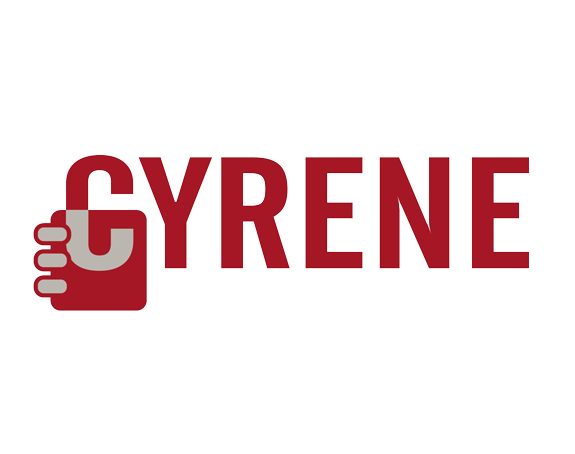ΕΛΑΙΩΝ
Innovative Methodological Tools for Traceability, Certification and
Authenticity Assessment of Olive Oil and Olives
- Funded by: European Union and Greek national funds
- Project Acronym: ΕΛΑΙΩΝ
- Funded under: General Secretariat of Research and Innovation (GSRI) – RESEARCH-CREATE-INNOVATE
- Budget: 89997.50 € (Overall 961722.52 €)
- Start Date: 26th November 2020
- Duration: 30 months
- Website(s):
More Info
The olive oil and the olive fruit constitute a dynamic and competitive business sector. Because of its high quality, reputation and price, the excellent greek olive oil has become the target for adulteration with cheaper vegetable oils. The current analytical methods cannot offer a reliable identification of the cultivar variety of olive oil and, quite often, they fail to detect adulteration, especially in cases in which the adulterant has a similar composition with olive oil. The hallmark of the present research proposal is an integrated system of innovative methodological tools for the traceability, certification and authenticity assessment of olive oil and edible olives. The system constitutes of three absolutely complementary and state-of-the art technologies, as follows:
- Molecular Traceability Tools. We will develop rapid DNA tests, in a dry-reagent strip format, for the molecular identification, by naked eye, of the varietal origin of olive oil and olive fruits. Also we will develop rapid DNA test strips for the determination of adulteration of olive oil with other vegetable oils as well as the adulteration of monovarietal oil with olive oils of other varieties. It should be emphasized that the DNA fingerprint is the only reliable marker for unequivocal identification of the botanical variety because it is not affected by the environmental and geographical conditions. The DNA fingerprint, by its own, offers an added value to the product. The proposed methodological tools combine unique advantages regarding the accuracy, simplicity, practicality, short times of analysis and low cost. Simple sequence repeats (SSRs) and single nucleotide polymorphisms (SNPs) will be exploited as specific markers, with a high discriminating power, for the reliable identification of the botanical origin of the products tested.
- Methodological tools for certifying the geographical origin of olive oil and olives by using mass spectrometry. Two methodological approaches will be implemented. One approach is based on the determination of natural isotopes that constitute the structural components of the biological compounds such as C, N, O, H and S (Isotope Ratio Mass Spectrometry, IRMS). The second methodology will identify new authenticity markers for olive oil and the edible olives using metabolomics and high-resolution mass spectrometry for the certification of the geographical origin. Since olive oil contains several compounds with the same molecular formula but different physicochemical properties, we will apply ion mobility mass spectrometry in combination with QTOFMS.
- Mobile phone application for the identification of olive fruit origin based on morphological characteristics. The first part involves the digital identification of greek varieties of edible olives based on the morphological characteristics of whole unprocessed fruits and the endocarps. Morphological analysis will be performed by digital photography and image analysis with state-of-the art algorithms. The outcome of this activity will be the construction of a ‘Phenomics Atlas’ for the greek olives. Subsequently, strong statistical tools and machine learning will be exploited in order to detect adulteration of edible olives. Finally, a smartphone app will be designed and implemented that enables real-time identification of the olive variety using as input digital photos of the sample.
- ΚΑΣΣΕΛ Ανώνυμη Βιομηχανική & Εμπορική Εταιρεία Ελαιολάδου & Λιπασμάτων – Greece
- Αγροτικός Ελαιοπαραγωγικός Συνεταιρισμός Πιστοποιημένα Προϊόντα Γαργαλιάνων – Greece
- AGROLAB ΑΕ – Greece
- Mediterranean Agronomic Institute of Chania – Greece
- University of Patras – Greece
- Telecommunication Systems Institute – Greece
- Foundation for Research & Technology – Ελλάδα

Other Projects

AI4RecNets

Green.Dat.AI

SecOPERA

EMERALDS

EDGELESS

SUN

CLIMOS
Cost-Benefit and Climate-Policy Measures

ORAMA
Platoons

SENTINEL

OPTIMA

EnerMAN

ELAION

AERAS

IntellIoT

Cyrene
EDRA
Hardware-Assisted Decoupled Access Execution on the Digital Market: The EDRA Framework
- Funded by: European Commission
- Project Acronym: EDRA
- Funded under: H2020 (H2020-EU.1.2.1.)
- Budget: 100000 € (Overall: 100000 €)
- Start Date: 1st May 2019
- Duration: 18 months
- Website(s): CORDIS
More Info
High performance computing framework in the cloud
Developing the next generation of high-performance computing (HPC) technologies, applications and systems towards exascale is a priority for the EU. The ‘Decoupled Access – Execute’ (DAE) approach is an HPC framework developed by the EU-funded project EXTRA for mapping applications to reconfigurable hardware. The EU-funded EDRA project will deploy virtual machines that integrate the EXTRA DAE architecture onto custom hardware within the cloud infrastructure of the Amazon Web Services marketplace, one of the largest cloud service providers. The project will focus on the commercialisation of EDRA on Amazon’s web service marketplace to ensure the EDRA framework is widely available and versatile for wide-ranging applications.
The FET project “EXTRA” (Exploiting eXascale Technology with Reconfigurable Architectures) aimed at devising efficient ways to deploy ultra-efficient heterogeneous compute nodes for future exascale High Performance Computing (HPC) applications. One major outcome was the development of a framework for mapping applications to reconfigurable hardware, relying on the concept of Decoupled Access – Execute (DAE) approach.
This project focuses on the commercialization of the EXTRA framework for cloud HPC platforms. More specifically, it targets the deployment of Virtual Machines (VMs) that integrate the EXTRA DAE Reconfigurable Architecture (EDRA) on custom hardware within the cloud infrastructure of one of the largest cloud service providers, the Amazon Web Services marketplace. End-users will be able to automatically map their applications to “EDRA-enhanced” VMs, and directly deploy them onto Amazon’s cloud infrastructure for optimal performance and minimal cost.
Towards a successful exploitation outcome, the project will put effort on (a) applying the required software- and hardware-level modifications on the current EXTRA framework to comply with Amazon’s infrastructure, (b) devising a business strategy to effectively address various user groups, and (c) disseminating the benefits of this solution to large public events and summits.
- Telecommunication Systems Institute – Greece
Other Projects

AI4RecNets

Green.Dat.AI

SecOPERA

EMERALDS

EDGELESS

SUN

CLIMOS
Cost-Benefit and Climate-Policy Measures

ORAMA
Platoons

SENTINEL

OPTIMA

EnerMAN

ELAION

AERAS

IntellIoT

Cyrene
EXTRA
Exploiting eXascale Technology with Reconfigurable Architectures
- Funded by: European Commission
- Project Acronym: EXTRA
- Funded under: Horizon 2020 (H2020-EU.1.2.2.)
- Budget: 420000 € (Overall: 3989931,25 €)
- Start Date: 1st September 2015
- Duration: 36 months
- Website(s): www.extrahpc.eu, CORDIS
More Info
To handle the stringent performance requirements of future exascale High Performance Computing (HPC) applications, HPC systems need ultra-efficient heterogeneous compute nodes. To reduce power and increase performance, such compute nodes will require reconfiguration as an intrinsic feature, so that specific HPC application features can be optimally accelerated at all times, even if they regularly change over time.
In the EXTRA project, we create a new and flexible exploration platform for developing reconfigurable architectures, design tools and HPC applications with run-time reconfiguration built-in from the start. The idea is to enable the efficient co-design and joint optimization of architecture, tools, applications, and reconfiguration technology in order to prepare for the necessary HPC hardware nodes of the future.
The project EXTRA covers the complete chain from architecture up to the application:
- More coarse-grain reconfigurable architectures that allow reconfiguration on higher functionality levels and therefore provide much faster reconfiguration than at the bit level.
- The development of just-in time synthesis tools that are optimized for fast (but still efficient) re-synthesis of application phases to new, specialized implementations through reconfiguration.
- The optimization of applications that maximally exploit reconfiguration.
- Suggestions for improvements to reconfigurable technologies to enable the proposed reconfiguration of the architectures.
In conclusion, EXTRA focuses on the fundamental building blocks for run-time reconfigurable exascale HPC systems: new reconfigurable architectures with very low reconfiguration overhead, new tools that truly take reconfiguration as a design concept, and applications that are tuned to maximally exploit run-time reconfiguration techniques.
Our goal is to provide the European platform for run-time reconfiguration to maintain Europe’s competitive edge and leadership in run-time reconfigurable computing.
Publications
Conference proceedings (65)
- Optimizing streaming stencil time-step designs via FPGA floorplanningAuthor(s): Marco Rabozzi, Giuseppe Natale, Biagio Festa, Antonio Miele, Marco D. Santambrogio
Published in: 2017 27th International Conference on Field Programmable Logic and Applications (FPL), 2017, Page(s) 1-4
DOI: 10.23919/FPL.2017.8056764 - FPGA-based PairHMM Forward Algorithm for DNA Variant CallingAuthor(s): Davide Sampietro, Chiara Crippa, Lorenzo Di Tucci, Emanuele Del Sozzo, Marco D. Santambrogio
Published in: 2018 IEEE 29th International Conference on Application-specific Systems, Architectures and Processors (ASAP), 2018, Page(s) 1-8
DOI: 10.1109/ASAP.2018.8445119 - Heterogeneous exascale supercomputing: The role of CAD in the exaFPGA projectAuthor(s): M. Rabozzi, G. Natale, E. Del Sozzo, A. Scolari, L. Stornaiuolo, M. D. Santambrogio
Published in: Design, Automation & Test in Europe Conference & Exhibition (DATE), 2017, 2017, Page(s) 410-415
DOI: 10.23919/DATE.2017.7927025 - CGRA Tool Flow for Fast Run-Time ReconfigurationAuthor(s): Florian Fricke, André Werner, Keyvan Shahin, Michael Huebner
Published in: Proc. of the 14th International Symposium on Reconfigurable Computing: Architectures, Tools, and Applications (ARC), 2018, Page(s) 661-672
DOI: 10.1007/978-3-319-78890-6_53 - Superimposed in-circuit debugging for self-healing FPGA overlaysAuthor(s): Alexandra Kourfali, Dirk Stroobandt
Published in: 2018 IEEE 19th Latin-American Test Symposium (LATS), 2018, Page(s) 1-6
DOI: 10.1109/LATW.2018.8349688 - Tool flow for automatic generation of architectures and test-cases to enable the evaluation of CGRAs in the context of HPC applicationsAuthor(s): Florian Fricke, Andre Werner, Michael Hubner
Published in: 2017 Conference on Design and Architectures for Signal and Image Processing (DASIP), 2017, Page(s) 1-2
DOI: 10.1109/DASIP.2017.8122124 - Hardware Compilation of Deep Neural Networks: An OverviewAuthor(s): Ruizhe Zhao, Shuanglong Liu, Ho-Cheung Ng, Erwei Wang, James J. Davis, Xinyu Niu, Xiwei Wang, Huifeng Shi, George A. Constantinides, Peter Y. K. Cheung, Wayne Luk
Published in: 2018 IEEE 29th International Conference on Application-specific Systems, Architectures and Processors (ASAP), 2018, Page(s) 1-8
DOI: 10.1109/ASAP.2018.8445088 - SICTA: A superimposed in-circuit fault tolerant architecture for SRAM-based FPGAsAuthor(s): Alexandra Kourfali, Amit Kulkarni, Dirk Stroobandt
Published in: 2017 IEEE 23rd International Symposium on On-Line Testing and Robust System Design (IOLTS), 2017, Page(s) 5-8
DOI: 10.1109/IOLTS.2017.8046168 - ADAM – Automated Design Analysis and Merging for Speeding up FPGA DevelopmentAuthor(s): Ho-Cheung Ng, Shuanglong Liu, Wayne Luk
Published in: Proceedings of the 2018 ACM/SIGDA International Symposium on Field-Programmable Gate Arrays – FPGA ’18, 2018, Page(s) 189-198
DOI: 10.1145/3174243.3174247 - Hierarchical force-based block spreading for analytical FPGA placementAuthor(s): Dries Vercruyce, Elias Vansteenkiste, Dirk Stroobandt
Published in: FPL 2018, 2018 - The Role of CAD Frameworks in Heterogeneous FPGA-Based Cloud SystemsAuthor(s): Lorenzo Di Tucci, Marco Rabozzi, Luca Stornaiuolo, Marco D. Santambrogio
Published in: 2017 IEEE International Conference on Computer Design (ICCD), 2017, Page(s) 423-426
DOI: 10.1109/ICCD.2017.74 - CRRS: Custom Regression and Regularisation Solver for Large-scale Linear Systems,Author(s): A.-I. Cross, L. Guo, W. Luk and M. Salmon
Published in: International Conference on Field-Programmable Logic and Applications, 2018 - A NoC-based custom FPGA configuration memory architecture for ultra-fast micro-reconfigurationAuthor(s): Amit Kulkarni, Poona Bahrebar, Dirk Stroobandt, Giulio Stramondo, Catalin Bogdan Ciobanu, Ana Lucia Varbanescu
Published in: 2017 International Conference on Field Programmable Technology (ICFPT), 2017, Page(s) 203-206
DOI: 10.1109/FPT.2017.8280141 - An open reconfigurable research platform as stepping stone to exascale high-performance computingAuthor(s): Dirk Stroobandt, Catalin Bogdan Ciobanu, Marco D. Santambrogio, Gabriel Figueiredo, Andreas Brokalakis, Dionisios Pnevmatikatos, Michael Huebner, Tobias Becker, Alex J. W. Thom
Published in: Design, Automation & Test in Europe Conference & Exhibition (DATE), 2017, 2017, Page(s) 416-421
DOI: 10.23919/DATE.2017.7927026 - Towards Application-Centric Parallel MemoriesAuthor(s): Giulio Stramondo, Catalin Bogdan Ciobanu, Ana Lucia Varbanescu and Cees De Laat
Published in: EuroPar Workshops 2018 — HeteroPar’18, 2018 - From Tensor Algebra to Hardware Accelerators: Generating Streaming Architectures for Solving Partial Differential EquationsAuthor(s): Francis P. Russell, James Stanley Targett, Wayne Luk
Published in: 2018 IEEE 29th International Conference on Application-specific Systems, Architectures and Processors (ASAP), 2018, Page(s) 1-8
DOI: 10.1109/ASAP.2018.8445093 - A Parallel, Energy Efficient Hardware Architecture for the merAligner on FPGA Using Chisel HCLAuthor(s): Lorenzo Di Tucci, Davide Conficconi, Alessandro Comodi, Steven Hofmeyr, David Donofrio, Marco D. Santambrogio
Published in: 2018 IEEE International Parallel and Distributed Processing Symposium Workshops (IPDPSW), 2018, Page(s) 214-217
DOI: 10.1109/IPDPSW.2018.00041 - In-Circuit FPGA Debugging using Parameterised ReconfigurationsAuthor(s): Alexandra Kourfali and Dirk Stroobandt
Published in: 54th ACM/ESDA/IEEE Design Automation Conference (DAC), 2017 - Superimposed In-Circuit Fault Mitigation for Dynamically Reconfigurable FPGAsAuthor(s): Alexandra Kourfali, David Merodio Codinachs and Dirk Stroobandt
Published in: IEEE Conference on Radiation Effects on Components and Systems (RADECS), 2017 - An FPGA-Based Acceleration Methodology and Performance Model for Iterative StencilsAuthor(s): Enrico Reggiani, Giuseppe Natale, Carlo Moroni, Marco D. Santambrogio
Published in: 2018 IEEE International Parallel and Distributed Processing Symposium Workshops (IPDPSW), 2018, Page(s) 115-122
DOI: 10.1109/IPDPSW.2018.00026 - Towards Hardware Accelerated Reinforcement Learning for Application-Specific Robotic ControlAuthor(s): Shengjia Shao, Jason Tsai, Michal Mysior, Wayne Luk, Thomas Chau, Alexander Warren, Ben Jeppesen
Published in: 2018 IEEE 29th International Conference on Application-specific Systems, Architectures and Processors (ASAP), 2018, Page(s) 1-8
DOI: 10.1109/ASAP.2018.8445099 - From exaflop to exaflowAuthor(s): Tobias Becker, Pavel Burovskiy, Anna Maria Nestorov, Hristina Palikareva, Enrico Reggiani, Georgi Gaydadjiev
Published in: Design, Automation & Test in Europe Conference & Exhibition (DATE), 2017, 2017, Page(s) 404-409
DOI: 10.23919/DATE.2017.7927024 - MAX-PolyMem: High-Bandwidth Polymorphic Parallel Memories for DFEsAuthor(s): Catalin Bogdan Ciobanu, Giulio Stramondo, Cees de Laat, Ana Lucia Varbanescu
Published in: 2018 IEEE International Parallel and Distributed Processing Symposium Workshops (IPDPSW), 2018, Page(s) 107-114
DOI: 10.1109/IPDPSW.2018.00025 - Towards Efficient Convolutional Neural Network for Domain-Specific Applications on FPGAAuthor(s): R. Zhao, H.C. Ng, W. Luk and X. Niu
Published in: International Conference on Field-Programmable Logic and Applications, 2018 - HLS Support for Polymorphic Parallel MemoriesAuthor(s): Luca Stornaiuolo, Marco Rabozzi, Marco D. Santambrogio, Donatella Sciuto, Giulio Stramondo, Catalin Bogdan Ciobanu, Ana Lucia Varbanescu
Published in: proceeding of the 26th IFIP/IEEE International Conference on Very Large Scale Integration (VLSI-SoC), 2018 - OXiGen: A Tool for Automatic Acceleration of C Functions Into Dataflow FPGA-Based KernelsAuthor(s): Francesco Peverelli, Marco Rabozzi, Emanuele Del Sozzo, Marco D. Santambrogio
Published in: 2018 IEEE International Parallel and Distributed Processing Symposium Workshops (IPDPSW), 2018, Page(s) 91-98
DOI: 10.1109/IPDPSW.2018.00023 - Accelerated Inference of Positive Selection on Whole GenomesAuthor(s): Nikolaos Alachiotis, Charalampos Vatsolakis, Grigorios Chrysos and Dionisios N. Pnevmatikatos
Published in: International Conference on Field-Programmable Logic and Applications, 2018 - A CAD Open Platform for High Performance Reconfigurable Systems in the EXTRA ProjectAuthor(s): Marco Rabozzi, Rolando Brondolin, Giuseppe Natale, Emanuele Del Sozzo, Michael Huebner, Andreas Brokalakis, Catalin Ciobanu, Dirk Stroobandt, Marco Domenico Santambrogio
Published in: 2017 IEEE Computer Society Annual Symposium on VLSI (ISVLSI), 2017, Page(s) 368-373
DOI: 10.1109/ISVLSI.2017.71 - Liquid: High quality scalable placement for large heterogeneous FPGAsAuthor(s): Dries Vercruyce, Elias Vansteenkiste, Dirk Stroobandt
Published in: 2017 International Conference on Field Programmable Technology (ICFPT), 2017, Page(s) 17-24
DOI: 10.1109/FPT.2017.8280116 - A Scalable FPGA Design for Cloud N-Body SimulationAuthor(s): Emanuele Del Sozzo, Marco Rabozzi, Lorenzo Di Tucci, Donatella Sciuto, Marco D. Santambrogio
Published in: 2018 IEEE 29th International Conference on Application-specific Systems, Architectures and Processors (ASAP), 2018, Page(s) 1-8
DOI: 10.1109/ASAP.2018.8445106 - EXTRA: An Open Platform for Reconfigurable ArchitecturesAuthor(s): Catalin Bogdan Ciobanu, Giulio Stramondo, Ana Lucia Varbanescu, Andreas Brokalakis, Antonis Nikitakis, Lorenzo Di Tucci, Marco Rabozzi, Luca Stornaiuolo, Marco D. Santambrogio, Grigorios Chrysos, Charalampos Vatsolakis, Charitopoulos Georgios, Dionisios Pnevmatikatos
Published in: Embedded Computer Systems: Architectures, Modeling, and Simulation (SAMOS XVIII), 2018 International Conference on, 2018
DOI: 10.1145/3229631.3236092 - A generic high throughput architecture for stream processingAuthor(s): Christes Rousopoulos, Ektoras Karandeinos, Grigorios Chrysos, Apostolos Dollas, Dionisios N. Pnevmatikatos
Published in: 2017 27th International Conference on Field Programmable Logic and Applications (FPL), 2017, Page(s) 1-5
DOI: 10.23919/FPL.2017.8056796 - Five-point algorithm: An efficient cloud-based FPGA implementationAuthor(s): Marco Rabozzi, Emanuele Del Sozzo, Lorenzo Di Tucci, Marco D. Santambrogio
Published in: 2018 IEEE 29th International Conference on Application-specific Systems, Architectures and Processors (ASAP), 2018, Page(s) 1-8
DOI: 10.1109/ASAP.2018.8445097 - A decoupled access-execute architecture for reconfigurable acceleratorsAuthor(s): George Charitopoulos, Charalampos Vatsolakis, Grigorios Chrysos, Dionisios N. Pnevmatikatos
Published in: Proceedings of the 15th ACM International Conference on Computing Frontiers – CF ’18, 2018, Page(s) 244-247
DOI: 10.1145/3203217.3203267 - Online reconfigurable routing method for handling link failures in NoC-based MPSoCsAuthor(s): Poona Bahrebar, Dirk Stroobandt
Published in: 2016 11th International Symposium on Reconfigurable Communication-centric Systems-on-Chip (ReCoSoC), 2016, Page(s) 1-8
DOI: 10.1109/ReCoSoC.2016.7533905 - Runtime-quality tradeoff in partitioning based multithreaded packingAuthor(s): Dries Vercruyce, Elias Vansteenkiste, Dirk Stroobandt
Published in: 2016 26th International Conference on Field Programmable Logic and Applications (FPL), 2016, Page(s) 1-9
DOI: 10.1109/FPL.2016.7577300 - Efficient Hardware Debugging Using Parameterized FPGA ReconfigurationAuthor(s): Alexandra Kourfali, Dirk Stroobandt
Published in: 2016 IEEE International Parallel and Distributed Processing Symposium Workshops (IPDPSW), 2016, Page(s) 277-282
DOI: 10.1109/IPDPSW.2016.95 - A 16-Bit Reconfigurable Encryption Processor for p-CipherAuthor(s): Mohamed El-Hadedy, Hristina Mihajloska, Danilo Gligoroski, Amit Kulkarni, Dirk Stroobandt, Kevin Skadron
Published in: 2016 IEEE International Parallel and Distributed Processing Symposium Workshops (IPDPSW), 2016, Page(s) 162-171
DOI: 10.1109/IPDPSW.2016.27 - MiCAP: a custom reconfiguration controller for dynamic circuit specializationAuthor(s): Amit Kulkarni, Vipin Kizheppatt, Dirk Stroobandt
Published in: 2015 International Conference on ReConFigurable Computing and FPGAs (ReConFig), 2015, Page(s) 1-6
DOI: 10.1109/ReConFig.2015.7393327 - Hardware Design Automation of Convolutional Neural NetworksAuthor(s): Andrea Solazzo, Emanuele Del Sozzo, Irene De Rose, Matteo De Silvestri, Gianluca C. Durelli, Marco D. Santambrogio
Published in: 2016 IEEE Computer Society Annual Symposium on VLSI (ISVLSI), 2016, Page(s) 224-229
DOI: 10.1109/ISVLSI.2016.101 - Pixie: A heterogeneous Virtual Coarse-Grained Reconfigurable Array for high performance image processing applicationsAuthor(s): A. Kulkarni, A. Werner, F. Fricke, D. Stroobandt and M. Huebner
Published in: 3rd International Workshop on Overlay Architectures for FPGAs (OLAF2017), 2017 - EXTRA: Towards the exploitation of eXascale technology for reconfigurable architecturesAuthor(s): Dirk Stroobandt, Ana Lucia Varbanescu, Catalin Bogdan Ciobanu, Muhammed Al Kadi, Andreas Brokalakis, George Charitopoulos, Tim Todman, Xinyu Niu, Dionisios Pnevmatikatos, Amit Kulkarni, Elias Vansteenkiste, Wayne Luk, Marco D. Santambrogio, Donatella Sciuto, Michael Huebner, Tobias Becker, Georgi Gaydadjiev, Antonis Nikitakis, Alex J. W. Thom
Published in: 2016 11th International Symposium on Reconfigurable Communication-centric Systems-on-Chip (ReCoSoC), 2016, Page(s) 1-7
DOI: 10.1109/ReCoSoC.2016.7533896 - An FPGA-based high-throughput stream join architectureAuthor(s): Charalabos Kritikakis, Grigorios Chrysos, Apostolos Dollas, Dionisios N. Pnevmatikatos
Published in: 2016 26th International Conference on Field Programmable Logic and Applications (FPL), 2016, Page(s) 1-4
DOI: 10.1109/FPL.2016.7577354 - Design and exploration of routing methods for NoC-based multicore systemsAuthor(s): Poona Bahrebar, Dirk Stroobandt
Published in: 2015 International Conference on ReConFigurable Computing and FPGAs (ReConFig), 2015, Page(s) 1-4
DOI: 10.1109/ReConFig.2015.7393296 - EXTRA: Towards an Efficient Open Platform for Reconfigurable High Performance ComputingAuthor(s): Catalin Bogdan Ciobanu, Ana Lucia Varbanescu, Dionisios Pnevmatikatos, George Charitopoulos, Xinyu Niu, Wayne Luk, Marco D. Santambrogio, Donatella Sciuto, Muhammed Al Kadi, Michael Huebner, Tobias Becker, Georgi Gaydadjiev, Andreas Brokalakis, Antonis Nikitakis, Alex J. W. Thom, Elias Vansteenkiste, Dirk Stroobandt
Published in: 2015 IEEE 18th International Conference on Computational Science and Engineering, 2015, Page(s) 339-342
DOI: 10.1109/CSE.2015.54 - A Fully Parameterized Virtual Coarse Grained Reconfigurable Array for High Performance Computing ApplicationsAuthor(s): Amit Kulkarni, Elias Vasteenkiste, Dirk Stroobandt, Andreas Brokalakis, Antonios Nikitakis
Published in: 2016 IEEE International Parallel and Distributed Processing Symposium Workshops (IPDPSW), 2016, Page(s) 265-270
DOI: 10.1109/IPDPSW.2016.13 - A polyhedral model-based framework for dataflow implementation on FPGA devices of iterative stencil loopsAuthor(s): Giuseppe Natale, Giulio Stramondo, Pietro Bressana, Riccardo Cattaneo, Donatella Sciuto, Marco D. Santambrogio
Published in: Proceedings of the 35th International Conference on Computer-Aided Design – ICCAD ’16, 2016, Page(s) 1-8
DOI: 10.1145/2966986.2966995 - Heterogeneous exascale supercomputing: the role of CAD in the exaFPGA projectAuthor(s): M. Rabozzi, G. Natale, E. Del Sozzo, A. Scolari, L. Stornaiuolo, and M. D. Santambrogio
Published in: 2017 Design, Automation Test in Europe Conference Exhibition (DATE), 2017 - On the Automation of High Level Synthesis of Convolutional Neural NetworksAuthor(s): Emanuele Del Sozzo, Andrea Solazzo, Antonio Miele, Marco D. Santambrogio
Published in: 2016 IEEE International Parallel and Distributed Processing Symposium Workshops (IPDPSW), 2016, Page(s) 217-224
DOI: 10.1109/IPDPSW.2016.153 - Towards a Performance-Aware Power Capping Orchestrator for the Xen HypervisorAuthor(s): M. Arnaboldi, M. Ferroni, M. D. Santambrogio
Published in: Embed With Linux (EWiLi) Workshop 2016, 2016 - ProFAX: A hardware acceleration of a protein folding algorithmAuthor(s): Giulia Guidi, Lorenzo Di Tucci, Marco D. Santambrogio
Published in: 2016 IEEE 2nd International Forum on Research and Technologies for Society and Industry Leveraging a better tomorrow (RTSI), 2016, Page(s) 1-6
DOI: 10.1109/RTSI.2016.7740584 - Knowledge Transfer in Automatic Optimisation of Reconfigurable DesignsAuthor(s): Maciej Kurek, Marc Peter Deisenroth, Wayne Luk, Timothy Todman
Published in: 2016 IEEE 24th Annual International Symposium on Field-Programmable Custom Computing Machines (FCCM), 2016, Page(s) 84-87
DOI: 10.1109/FCCM.2016.29 - EURECA compilation: Automatic optimisation of cycle-reconfigurable circuitsAuthor(s): Xinyu Niu, Nicholas Ng, Tomofumi Yuki, Shaojun Wang, Nobuko Yoshida, Wayne Luk
Published in: 2016 26th International Conference on Field Programmable Logic and Applications (FPL), 2016, Page(s) 1-4
DOI: 10.1109/FPL.2016.7577359 - F-CNN: An FPGA-based framework for training Convolutional Neural NetworksAuthor(s): Wenlai Zhao, Haohuan Fu, Wayne Luk, Teng Yu, Shaojun Wang, Bo Feng, Yuchun Ma, Guangwen Yang
Published in: 2016 IEEE 27th International Conference on Application-specific Systems, Architectures and Processors (ASAP), 2016, Page(s) 107-114
DOI: 10.1109/ASAP.2016.7760779 - A Domain Specific Language for accelerated Multilevel Monte Carlo simulationsAuthor(s): Ben Lindsey, Matthew Leslie, Wayne Luk
Published in: 2016 IEEE 27th International Conference on Application-specific Systems, Architectures and Processors (ASAP), 2016, Page(s) 99-106
DOI: 10.1109/ASAP.2016.7760778 - A Scalable Dataflow Accelerator for Real Time Onboard Hyperspectral Image ClassificationAuthor(s): Shaojun Wang, Xinyu Niu, Ning Ma, Wayne Luk, Philip Leong, Yu Peng
Published in: Part of the Lecture Notes in Computer Science book series (LNCS, volume 9625), 2016, Page(s) 105-116
DOI: 10.1007/978-3-319-30481-6_9 - Connect on the fly: Enhancing and prototyping of cycle-reconfigurable modulesAuthor(s): Hao Zhou, Xinyu Niu, Junqi Yuan, Lingli Wang, Wayne Luk
Published in: 2016 26th International Conference on Field Programmable Logic and Applications (FPL), 2016, Page(s) 1-8
DOI: 10.1109/FPL.2016.7577332 - Optimising Sparse Matrix Vector multiplication for large scale FEM problems on FPGAAuthor(s): Paul Grigoras, Pavel Burovskiy, Wayne Luk, Spencer Sherwin
Published in: 2016 26th International Conference on Field Programmable Logic and Applications (FPL), 2016, Page(s) 1-9
DOI: 10.1109/FPL.2016.7577352 - CASK – Open-Source Custom Architectures for Sparse KernelsAuthor(s): Paul Grigoras, Pavel Burovskiy, Wayne Luk
Published in: Proceedings of the 2016 ACM/SIGDA International Symposium on Field-Programmable Gate Arrays – FPGA ’16, 2016, Page(s) 179-184
DOI: 10.1145/2847263.2847338 - A Decoupled Access-Execute Architecture for Reconfigurable AcceleratorsAuthor(s): George Charitopoulos, Charalampos Vatsolakis, Stefanos Sidiropoulos, Grigorios Chrysos and Dionisios Pnevmatikatos
Published in: 11th HiPEAC Workshop on Reconfigurable Computing (WRC’2017), 2017 - Customizable Memory Systems for High Performance Reconfigurable ArchitecturesAuthor(s): Catalin Ciobanu, Giulio Stramondo, Ana Lucia Varbanescu
Published in: International Summer School on Advanced Computer Architecture and Compilation for High-Performance and Embedded (ACACES) 2016, 2016 - A Scalable Dataflow Implementation of Curran’s Approximation AlgorithmAuthor(s): Anna Maria Nestorov, Enrico Reggiani, Marco Domenico Santambrogio, Pavel Burovskiy, Hristina Palikareva and Tobias Becker
Published in: Reconfigurable Architectures Workshop, 2017 - From exaflop to exaflowAuthor(s): • Tobias Becker, Pavel Burovskiy, Anna Maria Nestorov, Hristina Palikareva, Enrico Reggiani, Georgi Gaydadjiev
Published in: Proceedings of the Design Automation and Test in Europe Conference, 2017 - How effective are custom parallel memoriesAuthor(s): Giulio Stramondo, Ana Lucia Varbanescu and Catalin Bogdan Ciobanu
Published in: ICT.Open, 2017 - The Case for Custom Parallel Memories: an Application-centric AnalysisAuthor(s): Giulio Stramondo, Catalin Ciobanu, Ana Lucia Varbanescu
Published in: 2016
Peer reviewed articles (14)
- Abacus turn model-based routing for NoC interconnects with switch or link failuresAuthor(s): Poona Bahrebar, Dirk Stroobandt
Published in: Microprocessors and Microsystems, Issue 59, 2018, Page(s) 69-91, ISSN 0141-9331
DOI: 10.1016/j.micpro.2018.01.005 - Quantum Chemistry in Dataflow: Density-Fitting MP2Author(s): Bridgette Cooper, Stephen Girdlestone, Pavel Burovskiy, Georgi Gaydadjiev, Vitali Averbukh, Peter J. Knowles, Wayne Luk
Published in: Journal of Chemical Theory and Computation, Issue 13/11, 2017, Page(s) 5265-5272, ISSN 1549-9618
DOI: 10.1021/acs.jctc.7b00649 - How Preserving Circuit Design Hierarchy During FPGA Packing Leads to Better PerformanceAuthor(s): Dries Vercruyce, Elias Vansteenkiste, Dirk Stroobandt
Published in: IEEE Transactions on Computer-Aided Design of Integrated Circuits and Systems, Issue 37/3, 2018, Page(s) 629-642, ISSN 0278-0070
DOI: 10.1109/TCAD.2017.2717786 - FP-BNN: Binarized neural network on FPGAAuthor(s): Shuang Liang, Shouyi Yin, Leibo Liu, Wayne Luk, Shaojun Wei
Published in: Neurocomputing, Issue 275, 2018, Page(s) 1072-1086, ISSN 0925-2312
DOI: 10.1016/j.neucom.2017.09.046 - Run-time Reconfigurable Acceleration for Genetic Programming Fitness Evaluation in Trading StrategiesAuthor(s): Andreea-Ingrid Funie, Paul Grigoras, Pavel Burovskiy, Wayne Luk, Mark Salmon
Published in: Journal of Signal Processing Systems, Issue 90/1, 2018, Page(s) 39-52, ISSN 1939-8018
DOI: 10.1007/s11265-017-1244-8 - How to Efficiently Reconfigure Tunable Lookup Tables for Dynamic Circuit SpecializationAuthor(s): Amit Kulkarni, Dirk Stroobandt
Published in: International Journal of Reconfigurable Computing, Issue 2016, 2016, Page(s) 1-12, ISSN 1687-7195
DOI: 10.1155/2016/5340318 - Floorplanning Automation for Partial-Reconfigurable FPGAs via Feasible Placements GenerationAuthor(s): Marco Rabozzi, Gianluca Carlo Durelli, Antonio Miele, John Lillis, Marco Domenico Santambrogio
Published in: IEEE Transactions on Very Large Scale Integration (VLSI) Systems, Issue 25/1, 2017, Page(s) 151-164, ISSN 1063-8210
DOI: 10.1109/TVLSI.2016.2562361 - MiCAP-Pro: a high speed custom reconfiguration controller for Dynamic Circuit SpecializationAuthor(s): Amit Kulkarni, Dirk Stroobandt
Published in: Design Automation for Embedded Systems, Issue 20/4, 2016, Page(s) 341-359, ISSN 0929-5585
DOI: 10.1007/s10617-016-9180-6 - On How to Accelerate Iterative Stencil LoopsAuthor(s): Riccardo Cattaneo, Giuseppe Natale, Carlo Sicignano, Donatella Sciuto, Marco Domenico Santambrogio
Published in: ACM Transactions on Architecture and Code Optimization, Issue 12/4, 2016, Page(s) 1-26, ISSN 1544-3566
DOI: 10.1145/2842615 - Performance-driven instrumentation and mapping strategies using the LARA aspect-oriented programming approachAuthor(s): João M. P. Cardoso, José G. F. Coutinho, Tiago Carvalho, Pedro C. Diniz, Zlatko Petrov, Wayne Luk, Fernando Gonçalves
Published in: Software: Practice and Experience, Issue 46/2, 2016, Page(s) 251-287, ISSN 0038-0644
DOI: 10.1002/spe.2301 - Leveraging FPGAs for Accelerating Short Read AlignmentAuthor(s): James Arram, Thomas Kaplan, Wayne Luk, Peiyong Jiang
Published in: IEEE/ACM Transactions on Computational Biology and Bioinformatics, 2017, Page(s) 1-1, ISSN 1545-5963
DOI: 10.1109/TCBB.2016.2535385 - A Domain Specific Approach to High Performance Heterogeneous ComputingAuthor(s): Gordon Inggs, David B. Thomas, Wayne Luk
Published in: IEEE Transactions on Parallel and Distributed Systems, Issue 28/1, 2017, Page(s) 2-15, ISSN 1045-9219
DOI: 10.1109/TPDS.2016.2563427 - NeuroFlow: A General Purpose Spiking Neural Network Simulation Platform using Customizable ProcessorsAuthor(s): Kit Cheung, Simon R. Schultz, Wayne Luk
Published in: Frontiers in Neuroscience, Issue 9, 2016, ISSN 1662-453X
DOI: 10.3389/fnins.2015.00516 - Transparent In-Circuit Assertions for FPGAsAuthor(s): Eddie Hung, Tim Todman, Wayne Luk
Published in: IEEE Transactions on Computer-Aided Design of Integrated Circuits and Systems, 2017, Page(s) 1-1, ISSN 0278-0070
DOI: 10.1109/TCAD.2016.2618862
Book chapters (1)
- Chapter Four – Data Flow Computing in Geoscience ApplicationsAuthor(s): L. Gan, H. Fu, O. Mencer, W. Luk, G. Yang
Published in: 2017, Page(s) 125-158
DOI: 10.1016/bs.adcom.2016.09.005
- UNIVERSITEIT GENT – Belgium
- Telecommunication Systems Institute – Greece
- IMPERIAL COLLEGE OF SCIENCE TECHNOLOGY AND MEDICINE – United Kingdom
- POLITECNICO DI MILANO – Italy
- UNIVERSITEIT VAN AMSTERDAM – Netherlands
- RUHR-UNIVERSITAET BOCHUM – Germany
- MAXELER TECHNOLOGIES LIMITED – United Kingdom
- SYNELIXIS LYSEIS PLIROFORIKIS AUTOMATISMOU & TILEPIKOINONION ANONIMI ETAIRIA – Greece
- THE CHANCELLOR MASTERS AND SCHOLARS OF THE UNIVERSITY OF CAMBRIDGE – United Kingdom
Other Projects

AI4RecNets

Green.Dat.AI

SecOPERA

EMERALDS

EDGELESS

SUN

CLIMOS
Cost-Benefit and Climate-Policy Measures

ORAMA
Platoons

SENTINEL

OPTIMA

EnerMAN

ELAION

AERAS

IntellIoT

Cyrene
RELATED LINKS
ADDRESS
Telecommunication Systems Research Institute (T.S.I.)
Technical University of Crete
Campus – Akrotiri
73100 Chania
Greece


